5 - Hotel California
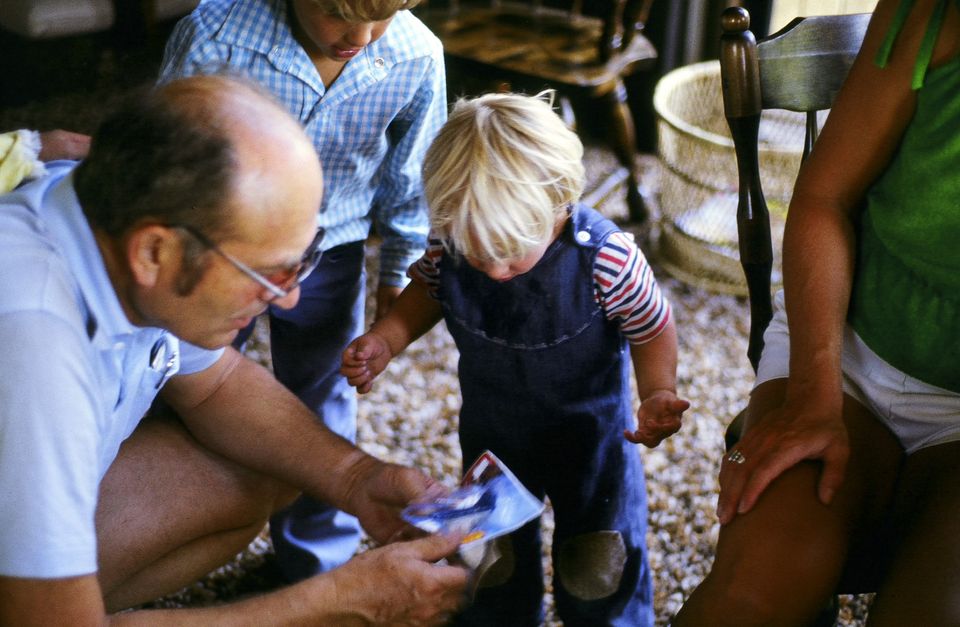
Fifth grade is a blur. I have no photos, very few memories.
It’s the fall of 1979, and I feel like Sam Gamgee, at the end of The Two Towers: Frodo has survived Shelob (barely), but he’s been captured by the orcs, taken captive in Mordor:
The great doors slammed to. Boom. The bars of iron fell into place inside. Clang. The gate was shut. Sam hurled himself against the bolted brazen plates and fell senseless to the ground. He was out in the darkness. Frodo was alive but taken by the Enemy.
Most mornings are like waking from a bad dream, only to discover it wasn’t a dream at all:
…The divorce is final – Mom and the kids are gone. Clang.
…I’m sticking with Dad – but he’s still on the road, which means I can’t really stay with him. Clang.
…So I’m going to live with Dad’s folks – Grandma and Grandpa Cryder, whom I barely know. Yes, they have a cabin in Sun Valley (that’s where we crashed the Stinson in July). But they live and work in… California. Clang.
…And that means starting over – new state, new school, new friends, new family. Clang. Clang. Clang.
For how long? Until Dad gets promoted or Mom comes back.
And that’s fifth grade in a nutshell: a lingering nausea and ongoing sense of vertigo, as my family members spin off in new directions, while I’m left to find my feet on my own.
Welcome to Hotel California. Clang!
Oris Donald Cryder was a piece of work. With a name like that, you had to be.
Born in Twin Falls, Idaho in 1921, O.D. (or Don, as he was known to friends) not only lived through the Great Depression – he raised himself and his sister while he was at it. His dad was a drunk; his mom hospitalized in a TB ward. So O.D. took it on himself to make sure they survived, got educated, and made their way in the world. And they did.
In his twenties, O.D. served as a Marine Corps navigator flying DC3s in the South Pacific during WWII. He was in theater when we occupied Japan. Dad found an old picture in one of his history books – O.D. is standing there in the background while the Japanese ceremoniously surrender their claims in China. (If merely fighting in a war leaves its mark on a man, what does winning one do to you?)
As I remember him, Grandpa Don was self-assured, deeply patriotic, with strong opinions about how the world ought to work. He loved airplanes, was proud of his military service, and his workshop in the garage was spotless. He had no time for slackers or grifters. He figured that hard work never hurt anyone, that most things were possible if you applied yourself, so all complainers should stop whining and get after it.
After the war, that’s just what he did.
O.D. returned home to Idaho and got after it on the family front: Dad arrived in ‘47, followed by Uncle Scott, then Aunt Cathy. As Cathy tells it, Grandpa took a free-range approach to raising kids; Twin Falls was the perfect place for it.
Twin Falls – Twin, as it’s called by locals – is a sleepy little town about 120 miles southeast of Boise. Its biggest claim to fame came in 1974, when Evel Knieval tried (and failed) to jump the Snake River in a steam powered rocket. But back in the ‘50s and ‘60s, Twin was still just a small agricultural community out on the edge of the desert.
For the most part, it still is.
The Snake River cuts through the heart of Twin Falls and the rich volcanic plains that surround it. The salmon are long gone now, casualties of the dams that made progress (in the form of irrigation, agriculture, and jobs) possible. But when Dad was growing up, there was still plenty of hunting and fishing and adventure to be had nearby – hill country to the south, the Sawtooth Mountains to the north, with miles of old lava flows scattered about in between. (Driving through the Craters of The Moon in winter moonlight on your way to Sun Valley is surreal. Everyone should do it at least once.)
O.D. made sure his kids were competent in everything Idaho had to offer. To be a Cryder meant knowing how to hunt, fish, shoot, kill, clean, butcher (and reload your own ammunition). Heck, O.D. was even building his own bows back then. The entire family learned how to ski at Sun Valley, 90 miles to the north. Grandpa would eventually build himself a cabin up on Eagle Creek, just outside of Ketchum, for easier access to the mountains. That was back before only the rich and famous could afford to live there.
But Twin Falls was always home.
O.D. worked as hard as he played, and he expected his offspring to do the same. By the mid ‘70s the kids were all off to college, getting married, and having kids of their own (mostly in that order). Grandpa had built a career in the seed business, and his company – Keystone Seeds – got acquired. O.D. got promoted, then relocated.
By the fall of 1979 – right after the summer of The Crash – Grandpa Don and Grandma Ruth were living and working fulltime in Hollister, California.
That meant I was living in Hollister, too.
Grandpa Don smoked a pipe.
When I say “smoked a pipe”, I don’t mean in your “1950s outdoorsman” cliché sort of way – the guy who strikes a pose, or lights up his pipe while sitting in a duck blind a couple times a year.
No, I mean smoked like a chimney – all day, every day, for as long as I can remember. Grandpa Don was never without his pipe. Lit or not, it might as well have been welded into his mouth. He was practically married to it (“…in sickness and in health”).
…He smoked it in the garage.
…He smoked it in the airplane hangar.
…He smoked it in the house (when he could get away with it).
…He smoked it in the car (windows up; so you smoked it too, unless you cracked your window to get some fresh air).
…He smoked it while hunting, fishing, skiing, and sailing.
…I’ll bet he smoked it at work, too. (It was a different world back then).
…The only place Grandpa Don didn’t smoke his pipe was in church – but that’s because he didn’t go to church.
(I do remember him sitting in a church, once, many years later, at Cameron’s wedding. In an attempt to keep him respectable on the big day, Grandma Ruth had confiscated all his pipes. But O.D. was a goddamn U.S. Marine, for chrissake! – he knew a thing or two about combat, so he had extras stashed everywhere.
And there he was, in the corner of the sanctuary, grumpy in his tux, but with a pipe fixed defiantly in his mouth. He had fished it out from under the front seat of his truck (she hadn’t found that one). It wasn’t lit – so technically he wasn’t smoking – but it was present and accounted for, nonetheless.)
Grandpa Don smoked a pipe like that.
I still remember how it smelled – aromatic, pungent, beautiful.
In one of my earliest childhood memories – age three, perhaps? – I see a huge harvest moon rising luminous and large, orange in the night sky over the eastern horizon. I know I am in Twin Falls, just like I know Grandpa is there. I can’t see him – the memory is all moon – but he’s there behind me, or off to the side. I know it, because I can still smell his pipe.
Grandpa smoked Sir Walter Raleigh.
Now that I smoke a pipe myself – and my son Micah makes a living creating fine, hand-carved tobacco pipes and selling them all over the world (Grandpa Don would get a kick out of that) – I am of the opinion that Sir Walter Raleigh is terrible tobacco.
It is cheap. It comes in an inexpensive foil package. It tastes like sawdust. You can buy it in the same places you find cheap cigars – gas stations, convenience stores, or on base at the PX. This, by the way, is where Grandpa also purchased his scotch: Scoresby, in the half gallon plastic bottle. (Scoresby is terrible, too.)
So O.D.’s tastes in scotch and tobacco might have been questionable. But back then, they smelled simply amazing. They imparted an ambience that was otherworldly.
Oris Don Cryder was singular; to this day, I’ve never met anyone quite like him.
Grandpa Don swore like a sailor.
This was new for me, too. Sure, I knew what cuss words were (I’d lived on a farm, after all) – I’d heard adults curse when they got kicked by a horse or were trying to fix a tractor; I’d heard kids trying out vocabulary on the playground.
But up to this point, all the adults in my orbit were well-behaved, church-going type folks. Cussing wasn’t just bad form; it was right up there with immorality and unbelief. (Heck, I wasn’t even allowed to say piss, pee or poop – much less shit, damn, or hell.)
We were Christians gosh darn it! The presence of profanity raised serious doubts about one’s standing with God. Curse words were occasional, or surreptitious.
Not for Grandpa Don.
“Hell, Chris!” he said one morning, a few days after I’d arrived. “Whaddya mean, ‘You don’t know how to cook an omelet’?”
He sounded shocked, appalled, maybe even offended – like he’d just discovered his ten-year-old grandson didn’t know how to read or write or wipe his own ass. (“Jesus Christ!” he would mutter. “What else hasn’t that son of mine taught you?”)
This was quintessential Grandpa Cryder.
First, the cussing. For as long as I’ve known him, Grandpa Don used cuss words like clothes (you’d never go out in public without them). He used cuss words like seasoning (adds flavor to whatever you’re eating). He used cuss words like Shakespeare used English (with artfulness, articulation, and purpose).
Grandpa could use profanity to express affection, disdain, and everything in between. He had a way of making sure you knew exactly what he thought of you (for better or worse).
Second, Grandpa Don always insisted on calling me ‘Chris’.
All my life, I have hated being called by anything less than my full name. He knew it, and did it anyway. He was ornery like that.
“Grandpa, my name is Christian!”
“Hell, Chris…” he’d respond. Then he’d just carry on with whatever he’d been saying in the first place.
His verbal acuity was endless.
He regularly called me honyocker, dinglefritz, or ackoo-head. I didn’t need to know the definitions – tone and context imparted meaning. If I spilled a glass of water, or tracked mud on the floor, he’d grouse: “Nice shot, straight arrow.” He always sounded put-out, half-pissed, seriously disappointed. Eventually, I would learn to recognize that sarcasm was how he expressed affection. Or dislike.
Boy, could Grandpa Don be sarcastic.
Right before he turned 80, my brother Cameron asked him, “Grandpa, what do you want for your birthday?”
“Hell, Cam…” he harrumphed (pipe firmly clenched in his teeth), “A box of condoms!”
Then he grinned like a teenager as Grandma Ruth shooed him out of the kitchen. Like I said – Oris Don was a piece of work.
Third, Grandpa Cryder loved to cook (and eat).
That’s what precipitated his comment about the omelet. In this particular case, O.D. took it as some sort of personal affront to the family name that I, as his firstborn grandson, hadn’t been properly trained in the fine art of omelettery.
The previous day, I had been introduced to my new classmates. (Was school already in session? I think so.) We were on a fieldtrip, touring a nearby farm. I knew no one. For some reason, there were golden eagles in a cage. And possibly owls. The whole class got to walk through a field looking for mushrooms. And I found one! It was huge, and edible, so they let me take it home. “Welcome to California!” they said.
(Doesn’t that just sound like a field trip in the ‘70s?)
The next morning – literally, the first or second day after I’ve arrived – we are standing in the kitchen when Grandpa Don says, “So, what should do with that mushroom, Chris?”
“I don’t know,” I say. (Grandma has just handed me a glass of orange juice – we never got orange juice back in Montana!)
“Well,” says Grandpa, “I think we’ll make an omelet out of it!”
At which point, I said something like, “What’s an omelet?” or “How do you do that?” (I had never so much as eaten a mushroom, or an omelet, much less learned how to cook.)
That’s when Grandpa says, “Hell, Chris! Whaddya mean, ‘You don’t know how to cook an omelet’?...” But in spite of all his grousing, a half hour later Grandpa has taught me how to do it. I have taken my first small steps toward becoming a cook.
Without realizing it, my world stabilized, ever so slightly. That’s a good thing; I was going to need all the stability I could get…
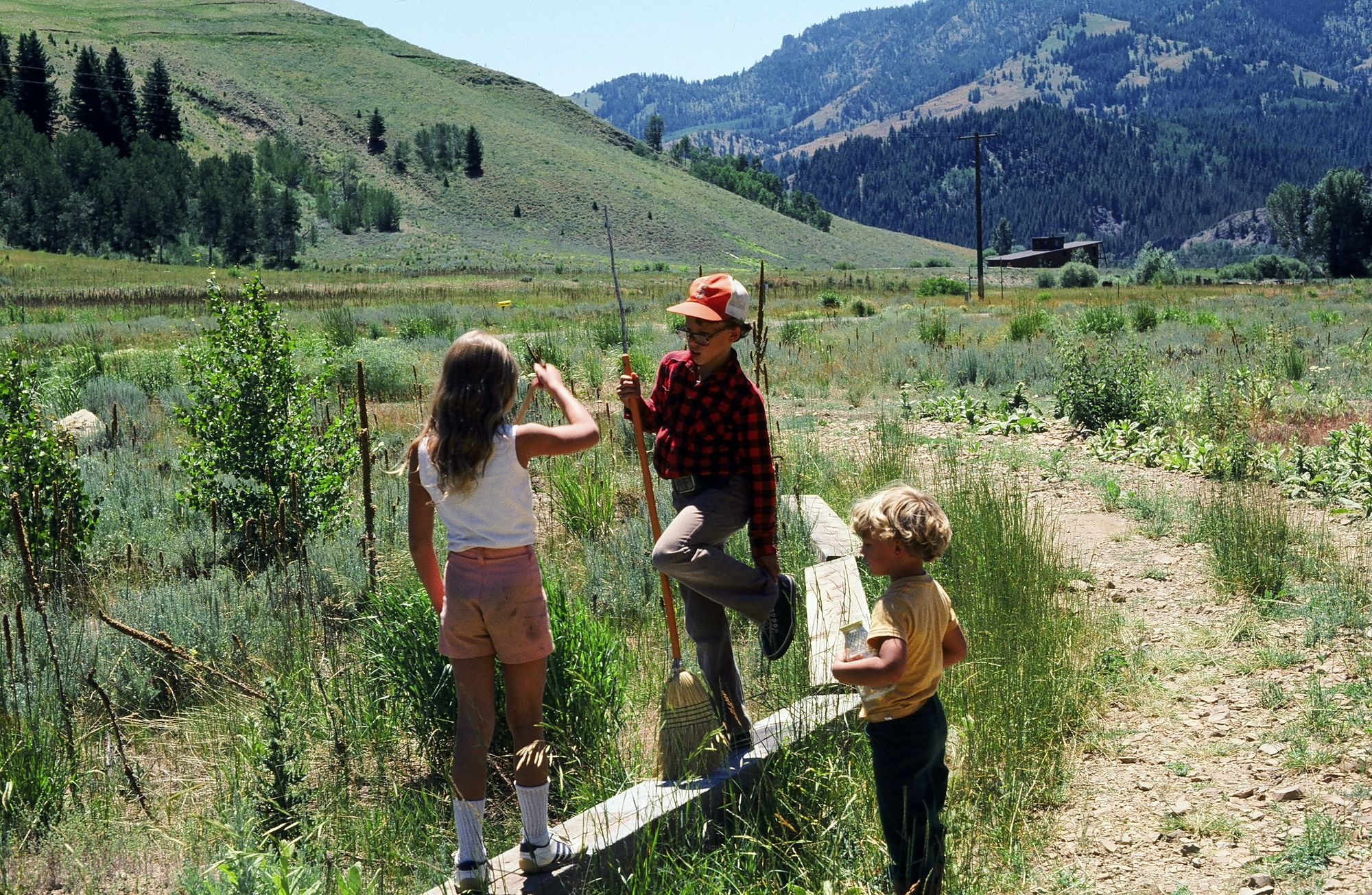

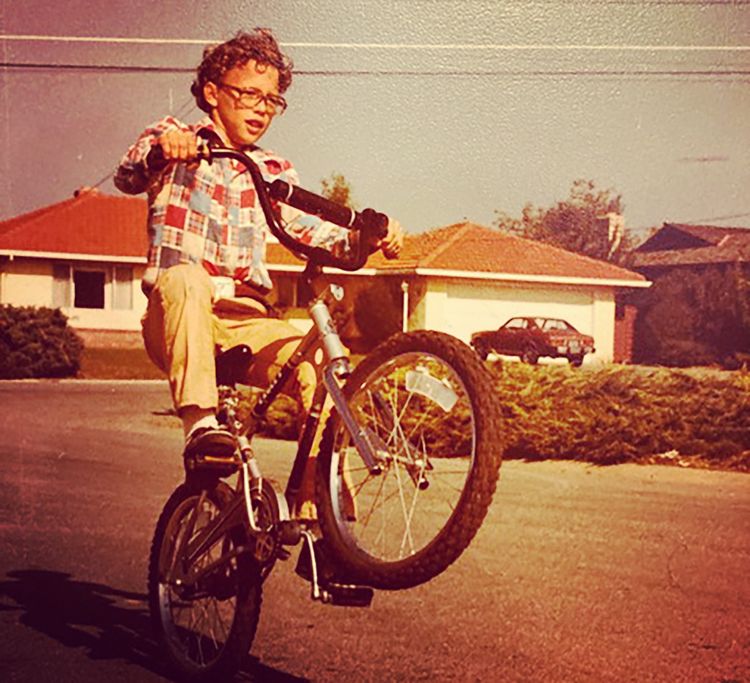
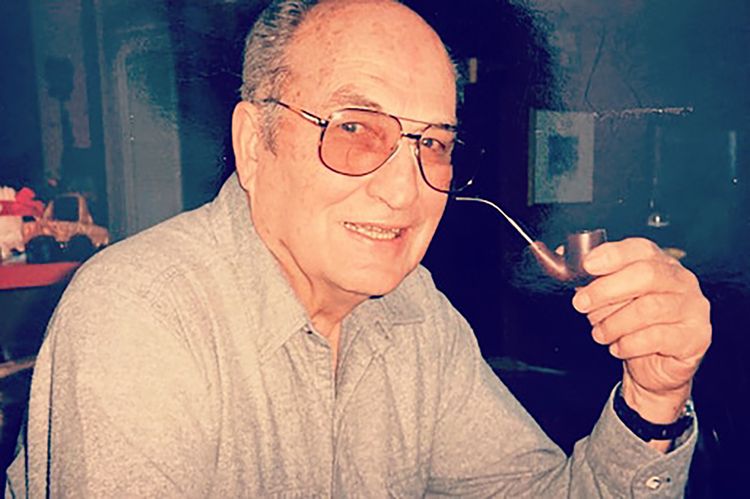
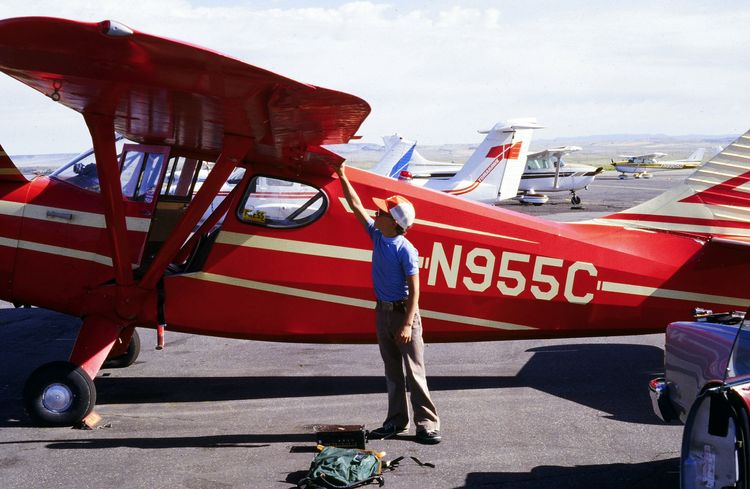
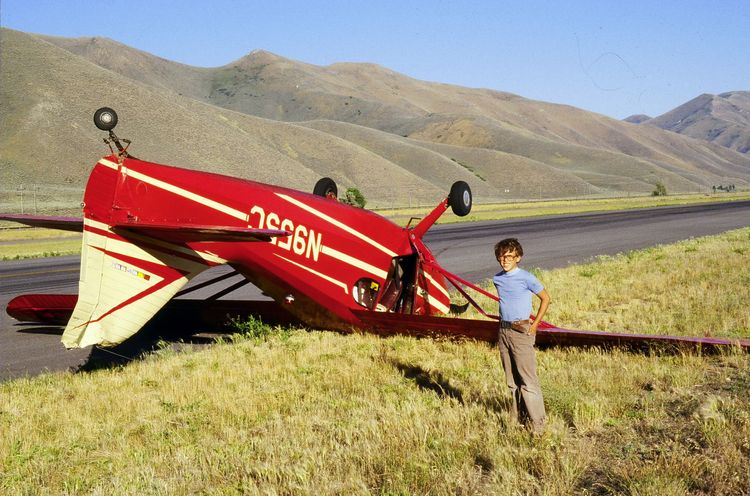
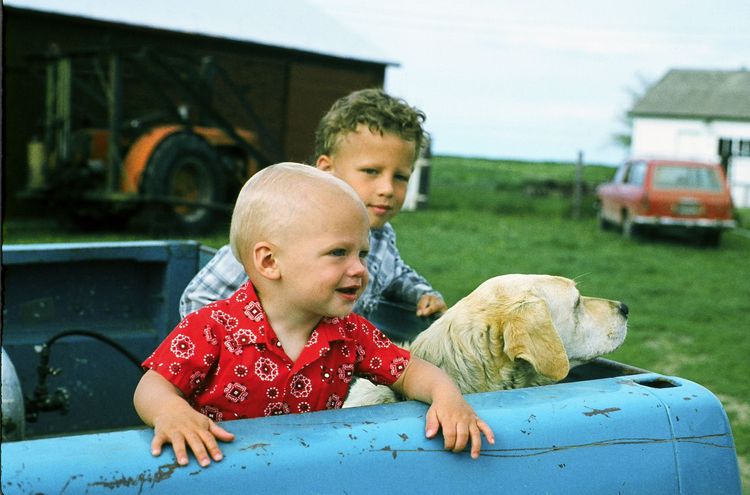
Member discussion